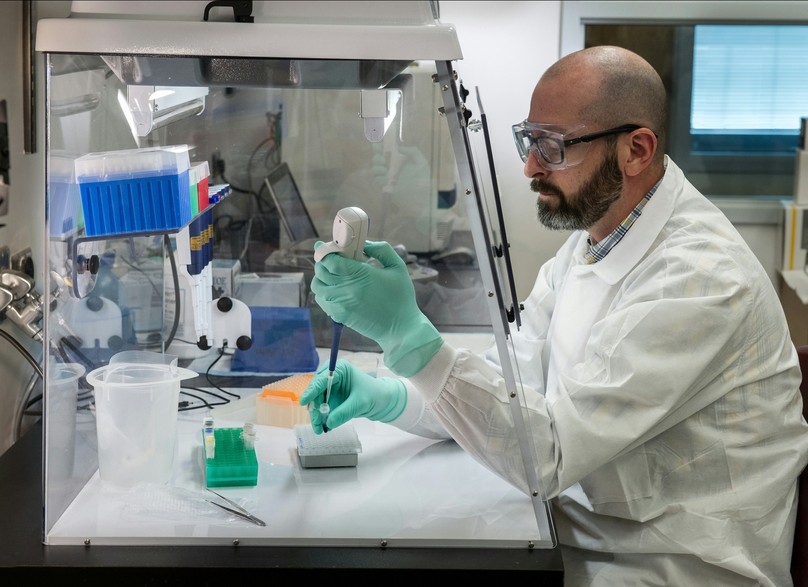In a world that is increasingly leaning toward personalized medicine and proactive health management, genetic testing has emerged as a pivotal tool. This comprehensive guide sheds light on what genetic testing entails, its purposes, and why it is a crucial step for you to consider.
What Is Genetic Testing?
Genetic testing is like a detective tool doctors use to see if there are any changes in our body's building blocks called chromosomes, genes, or proteins. By looking at these building blocks, doctors can figure out if someone might have a health problem, if they might get one in the future, or if they might pass one on to their kids. There are different kinds of detective tests. Some can tell if a baby, still in their mom's belly, might have a health problem. Others can check if a tiny baby, just born, has a health issue. There are also tests for grown-ups that can give them a heads-up about health problems they might face later.
When someone gets one of these tests, it's done with great care. Usually, a doctor will take a little bit of their blood or saliva (that's the watery stuff in our mouths). Then, this sample is sent to a particular place called a laboratory. In this lab, some workers act like puzzle solvers. They look closely at the sample to find any changes in the chromosomes, DNA, or proteins. These changes can give clues about different health problems.
Once the lab workers figure out the puzzle, they return the answers. These answers can help doctors decide the best way to care for their patients. For example, if someone learns they might get a specific illness, the doctor can help them choose to stay healthier. Or, if a couple wants to have a baby, the answers can help them know if their baby might have any health problems.
Why Should You Consider Genetic Testing?
For some, the knowledge of their genetic makeup provides a sense of control and proactive management over their health. If you have a family history of a particular genetic condition, testing can reveal whether you have inherited the condition or are a carrier of the genetic variant. This information can be crucial for making informed decisions about your health care, such as taking preventive measures to reduce disease risk.
Furthermore, genetic testing can be invaluable for families planning to have children. For couples with a history of genetic disorders, testing can determine if they are carriers and assess the risk of passing the condition on to their children. This information can guide decisions about pregnancy or lead to discussions about options such as in vitro fertilization with genetic testing of the embryos.
Additionally, for individuals already diagnosed with a genetic condition, testing can provide a more comprehensive understanding of their condition, influencing the management and treatment plan. It can also offer insight into the risk of recurrence in future pregnancies.
It's vital to approach genetic testing with a clear understanding and realistic expectations. Genetic counseling before and after the test is highly recommended to help navigate the emotional and complex nature of the results. Genetic testing can provide robust information, but it also raises ethical, legal, and psychological questions that need careful consideration.
Understanding the Results: Interpreting Your Genetic Test
When you receive your results, it's essential to understand what they mean for your health and what next steps you might consider.
Most genetic test results will fall into one of three categories: positive, negative, or inconclusive. A positive result indicates that the lab found a change in a specific gene, chromosome, or protein of interest. However, it's essential to understand that a positive result doesn't always mean you will develop a disease. Instead, it may suggest an increased risk.
A negative result means the lab did not find a change in the gene under consideration. This could indicate that you don't have the genetic disorder or the test couldn't detect it. Lastly, inconclusive results mean the test didn't provide a clear yes or no answer. In some cases, this could be because the significance of a particular genetic change still needs to be understood.
Innovations in Modern Genetic Testing Labs
The intricate processes and detailed analyses involved in genetic testing have greatly benefited from integrating advanced lab automation systems and software. Utilizing advanced tools, like those found at Genemod, laboratories can streamline operations, increase accuracy, and significantly reduce human error. These systems play a pivotal role in efficiently processing and interpreting genetic data. Alongside, the evolution of record-keeping in these labs has seen a shift toward digital solutions. The best electronic lab notebook platforms, such as the one offered by Genemod, ensure that researchers can document, track, and collaborate on their findings seamlessly. By marrying cutting-edge technology with rigorous genetic testing practices, labs are better equipped to provide comprehensive and accurate insights for individuals seeking to understand their genetic makeup.















